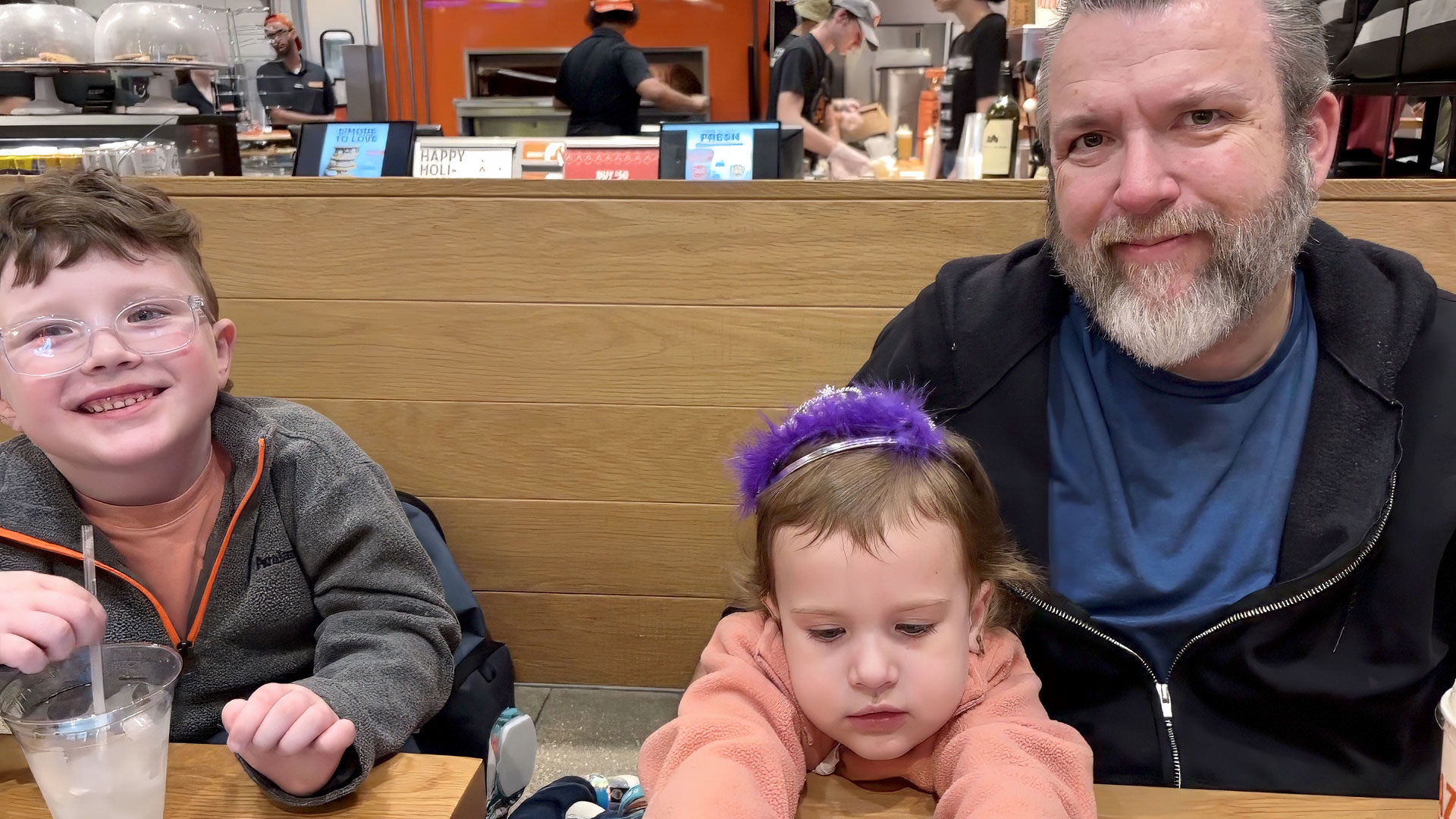At 47 years old, Gordon Dakin feels “reborn.” After undergoing gastric bypass surgery in September 2023, he has dropped 110 pounds and is now excited about the future he had been doubtful he would have.
“I don’t have any concern that I’ll see 50, 60, 70 because I feel in total control of my health now,” Gordon says.
He had the gastric bypass, also known as bariatric, metabolic or “weight-loss,” surgery at Cleveland Clinic Martin Health after a myriad of health problems made him realize his life was at risk. At 350 pounds he was considered morbidly obese, was pre-diabetic, had high blood pressure and had undergone surgery on his back due to damage from the excess weight on his spine. If he didn’t shed at least 100 pounds, he wouldn’t be able to have surgery to repair abdominal muscles that had torn because of the excess weight.
But his biggest motivation to get healthy was his wife and two young children.

Gordon Dakin (right) with his two children
“I didn’t know if I would be there to see my children grow up,” he says. “I don’t want to leave them. I want to ensure my health so I can be a part of their future.”
Dakin sought help at Cleveland Clinic Martin Health, where he works in the inpatient pharmacy. He says he was “blessed” to find Federico Serrot, MD, Medical Director of Bariatric and Metabolic Surgery.
“Dr. Serrot was so considerate and compassionate. He was honest and forthright but at the same time I could feel that he wanted to help me and that he wanted me to be successful,” Gordon says.
Dr. Serrot says that when he met with Gordon the first time, he could see he was “a very motivated patient who really wanted to make a change.”
Strong motivation, he says, is extremely important for patients undergoing metabolic surgery because the operation is a tool to kickstart an improvement in health – not a quick fix.
“This is a long-term commitment,” Dr. Serrot says.
Gastric bypass has been practiced and refined for about 60 years. The procedure modifies the stomach and small intestine, reducing them both in size, so that the patient consumes and absorbs fewer calories. It is not as common as the sleeve gastrectomy, a relatively newer procedure in which only the stomach size is reduced, helping to restrict calories and reduce hunger signals.
“I want to ensure my health so I can be a part of their future.”
“We offer a minimally invasive approach and perform all bariatric procedures robotically,” Dr. Serrot says. “This means a faster recovery, fewer complications and less pain.”
Patients prepare for surgery well in advance, working with a coordinator to help them through the process, which involves a team of caregivers including a dietitian, psychiatrist and other specialists to address issues resulting from the excess weight and to educate them on the lifestyle changes needed before surgery as well as after.
Regular follow-ups are required with the healthcare team after the surgery, and support groups are encouraged.
“We take care of our patients as if they were our family members,” Dr. Serrot says.
Gordon says that the support he receives from his healthcare team, along with support groups and his family, have been the key to his success. But just as important has been the daily commitment he makes to his health.
“The biggest thing I’m looking forward to is playing with my kids more,” he says. “I can now run around with them. I’ll be able to play sports with them and have the energy and ability that I didn’t before.”
Related Institutes: Digestive Disease & Surgery Institute

